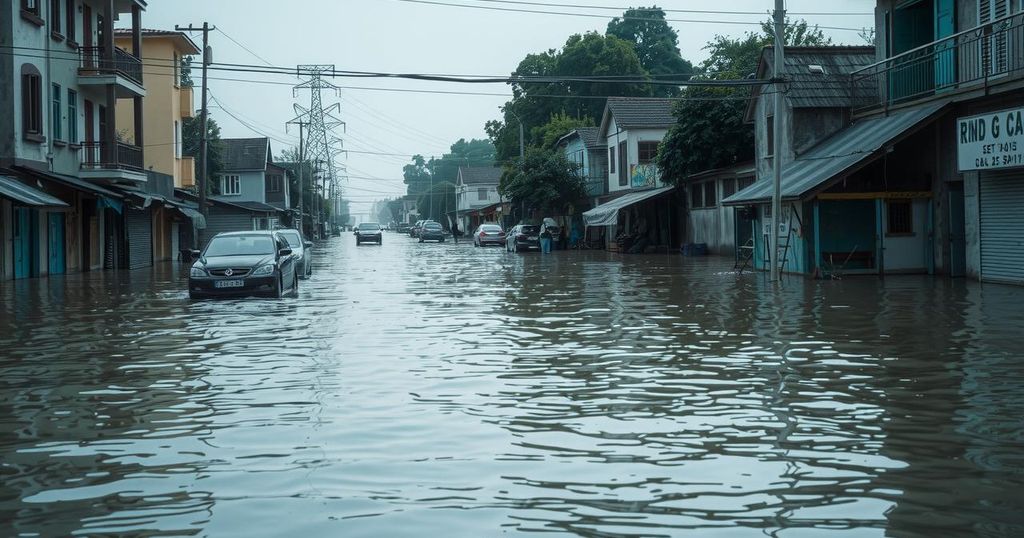UNICEF Report: 242 Million Children Affected by Extreme Weather in 2024
In 2024, UNICEF reported that 242 million children in 85 countries were unable to attend school due to extreme weather, such as heatwaves, cyclones, and flooding. This represents one in seven school-going children globally. Low-income nations suffered the most, with significant school destruction noted, particularly in Asia and sub-Saharan Africa. The report emphasizes the heightened vulnerability of children to climate-related crises and the urgent need for better preparedness in educational systems.
The United Nations Children’s Fund (UNICEF) has reported that 242 million children across 85 countries experienced school disruptions in 2024 due to extreme weather events, such as heatwaves, cyclones, and flooding. This accounts for approximately one in seven students globally being unable to attend school at some point during the year. Countries in low-income regions, particularly in Asia and sub-Saharan Africa, faced significant challenges as numerous schools were destroyed by weather-related incidents.
In southern Europe, torrential rains and floods in Italy alone impacted over 900,000 children, while catastrophic flooding in Spain halted classes for thousands. Throughout the year, heatwaves emerged as the primary climate hazard affecting school attendance, coinciding with the hottest year on record. UNICEF highlighted that in April alone, over 118 million children had their education disrupted, particularly in the Middle East and Asia, where temperatures exceeded 40 degrees Celsius (104 degrees Fahrenheit).
Catherine Russell, UNICEF executive director, stated, “Children are more vulnerable to the impacts of weather-related crises, including stronger and more frequent heatwaves, storms, droughts and flooding. Their bodies heat up faster, sweat less efficiently, and cool down more slowly than adults, making it challenging for them to concentrate in overheated classrooms or to reach schools that are flooded.”
The report reveals that approximately 74% of the children affected were in middle- and low-income nations, highlighting the severe impact of climate extremes on the poorest populations. In April, flooding damaged over 400 schools in Pakistan, while Afghanistan experienced both heatwaves and subsequent flooding that demolished more than 110 establishments in May.
Ongoing drought conditions in southern Africa, linked to the El Niño phenomenon, pose additional risks to the educational prospects of millions of children. The situation has been exacerbated by recent disasters, including Cyclone Chido in Mayotte, which displaced children from school for six weeks. Cyclone Chido also devastated over 330 schools in Mozambique, contributing to the region’s existing educational challenges.
UNICEF has asserted that global educational systems are insufficiently prepared to handle the adverse effects of extreme weather, highlighting the urgent need for action to protect children and their right to education.
The backdrop of this report focuses on the rising instances of extreme weather events linked to climate change, particularly their profound impact on children’s education. As global temperatures climb, the frequency and intensity of such weather disturbances increase, disproportionately affecting vulnerable populations, particularly in developing nations. Furthermore, the exacerbation of existing crises in education systems due to climatic factors underscores the urgent need for comprehensive strategies to safeguard children’s educational rights amidst such challenges.
In conclusion, UNICEF’s report underscores a critical issue faced by millions of children worldwide, where extreme weather events are significantly disrupting education systems. As highlighted, low-income nations are disproportionately affected, emphasizing the need for robust infrastructure and preparedness to tackle such climate challenges. Addressing these concerns is vital not only for the immediate educational needs of children but also for securing their futures in an increasingly unpredictable climate.
Original Source: www.usnews.com




Post Comment